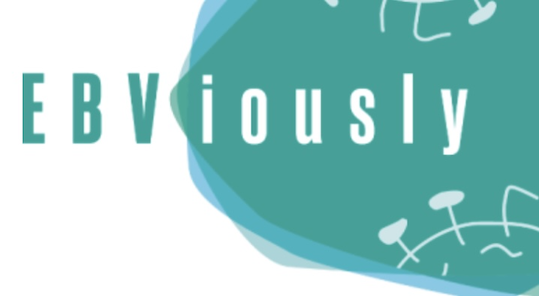News
EBViously Presents Novel In-Vitro Data Demonstrating Potent Infection Prevention of its Vaccine Candidate EBV-001

— Presentation at the World Vaccine Congress West Coast2023
— EBV-001 is designed for the prevention of Epstein-Barr Virus (EBV)-induced diseases via high titers of potent, neutralizing antibodies
— Novel in-vitro data support preclinical proof-of-concept data
EBViously, a start-up developing novel vaccines based on next-generation virus-like particles, has presented new in vitro data of its EBV-vaccine candidate EBV-001 at the World Vaccine Congress West Coast 2023 (Nov. 27-30, 2023) in Santa Clara, CA (USA). The presentation by EBViously’s designated COO Sebastian Goy was held on Thursday, November 30, 2023.
EBV-001, which is based on non-infectious virus-like particles (VLPs) derived from Epstein-Barr Virus (EBV), is designed as a highly immunogenic, multi-antigen vaccine to prevent EBV-associated diseases such as infectious mononucleosis, a disease which is often associated with chronic fatigue syndrome and multiple sclerosis or various cancers. The presented data demonstrate that even at low concentrations, non-adjuvanted EBV-001 induces a specific and strong B cell response in mice. The Company has also demonstrated that this results in very high titers of potent, neutralizing antibodies against various viral antigens so that sera from these EBV-001-vaccinated mice potently prevent an EBV infection of human B cells and epithelial cells in vitro. By mimicking the original viral pathogen and its complexity, EBV-001 delivers more than 50 viral antigens in their native conformation. EBViously has generated positive preclinical proof-of-concept data on the immunogenicity of the vaccine candidate. Moreover, the induction of a broad humoral and cellular immune response has already been demonstrated in animal models, reflecting the spectrum of antiviral immunity in humans.
“In addition to a strong preclinical data package, we now have everything in place for the start of clinical trials,” said Axel Polack, M.D., designated CEO of EBViously. “We have established a scalable and robust manufacturing process and have set up all necessary immune monitoring tools to study the humoral and cellular immune response during clinical trials. Following further confirmation of our preclinical efficacy data, we will apply for regulatory clearance to proceed towards a Phase I study.”
“Based on our very favorable preclinical proof-of-concept data on the immunogenicity of the vaccine, we are confident that EBV-001 can effectively prevent the development of infectious mononucleosis and the often associated chronic fatigue syndrome,” said Prof. Wolfgang Hammerschmidt, designated CSO of EBViously. “A GMP process has been established by a commercial CMO and our goal is to start clinical trials in 2024.”
EBV infections are linked to a range of serious illnesses, including Guillain-Barre syndrome and inflammatory bowel disease. It is also known that people infected with EBV are 32 times more likely to develop multiple sclerosis.
###
About EBViously
EBViously specializes in novel vaccines based on next-generation virus-like particles. The Company is a spin-off from Helmholtz Munich (HMGU) and is led by a group of renowned experts in the field of Epstein-Barr virus research. EBViously has so far received €9.6 million in funding from the German Center for Infection Research (DZIF) and Helmholtz Validierungs Fonds (HVF). The clinical trial is planned with EBViously´s collaboration partners at Ludwig-Maximilians-Universität München (LMU).
About EBV
Epstein-Barr virus is one of the nine known herpesviruses and one of the most common viruses found in humans. It is estimated that approximately 90% of the world´s population is infected with EBV. Infections typically occur in early childhood and are usually asymptomatic. However, when infections occur later in life, they frequently cause infectious mononucleosis (“glandular fever”) and other serious complications. The virus is also associated with certain cancers – approximately 200,000 cancer cases worldwide, including several types of lymphoma, are attributed to EBV. In 2022, a large study documented that EBV infection is by far the most important risk factor for multiple sclerosis. A history of infectious mononucleosis further increases the risk.
